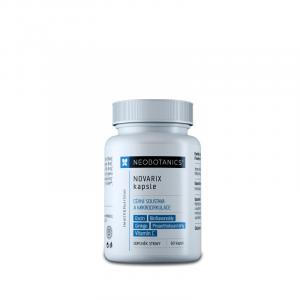
Canker sores in the throat and how to distinguish them from tonsillitis

How to Recognize and Manage Throat Ulcers - When Swallowing Hurts More Than Usual
A sore throat is a common problem that usually signals a common cold or viral infection. Sometimes, however, something else is behind this pain — throat ulcers. Unpleasant, painful sores that can make swallowing, talking, and eating difficult. How can you tell if it's ulcers? What remedies work for such sores, and when is it time to be concerned, especially in children?
How to Recognize Throat Ulcers and Not Confuse Them with Tonsillitis
Ulcers are small, white or yellowish sores with a red border that most commonly appear on the mucous membranes of the mouth, such as the inside of the lips, cheeks, or under the tongue. Less common but more unpleasant are ulcers at the back of the throat, on the tonsils, or in the pharyngeal area.
Unlike tonsillitis, it is not a bacterial infection. However, the symptoms can overlap. Pain when swallowing, a scratchy throat, or a fever — all of these can be common to both viral tonsillitis and more extensive ulcer outbreaks. The difference can be seen when you look into the throat — while tonsillitis often shows red and coated tonsils, ulcers appear more like isolated sores with a clearly defined edge.
"In our country, people often go to the doctor only when the pain gets so bad that they can't even swallow water. But if ulcers in the throat are noticed in time, the pain can be significantly reduced at home," explains MUDr. Ludmila Janíková, an ENT specialist.
Why Do Ulcers Occur? Triggers Aren't Always Clear
The causes of ulcers are not always straightforward. In adults, it can be a combination of stress, weakened immunity, mucosal irritation (for example, from very hot food), or a reaction to certain foods such as citrus fruits, chocolate, nuts, or spicy foods. In some cases, ulcers can also result from a deficiency in B vitamins, iron, or folic acid.
There are also situations where throat ulcers appear as a symptom of another disease, such as viral infections or autoimmune disorders. Sometimes the presence of throat ulcers is associated with infectious mononucleosis, herpetic infection, or Behçet's disease syndrome. If ulcers recur more than three times a year or are very extensive, it is advisable to ask a doctor for further investigation.
Try our natural products
Throat Ulcers in Children - Even Small Sores Deserve Special Attention
In children, throat ulcers are particularly painful because they strongly affect the delicate children's mucosa and can affect appetite and drinking. A child may be irritable, tired, and refuse to speak because every tongue movement hurts. In younger children, the first sign may be tearfulness, reluctance to eat, and a fever.
Especially in toddlers, it can be difficult to distinguish the problem from common tonsillitis. Pediatricians report that parents often come with suspicions of tonsillitis, but upon examination, it turns out to be aphthous stomatitis or herpangina — a viral disease with typical blisters in the mouth and on the palate.
One of the common triggers of ulcers in children is also mucosal injury — for example, from accidentally biting the cheek or using a hard toothbrush. Additionally, a child's immune system may react more strongly to common viral infections, manifesting in the formation of ulcers.
What Really Helps with Throat Ulcers and When It's Time to See a Doctor
Treatment of ulcers is mostly symptomatic — focused on reducing pain and speeding up healing. If throat ulcers appear, it is important to maintain gentle oral hygiene, avoid irritating foods, and drink plenty of fluids, ideally lukewarm. Mouthwash containing chlorhexidine or natural rinses, such as chamomile, sage, or saltwater, can be helpful.
Topical anesthetic gels, which are commonly available in pharmacies, can be used to numb the affected area. Pastilles with lidocaine or benzocaine also work, in appropriate forms for children. In some cases, supplementing vitamins from the B group or iron helps if their deficiency is confirmed.
When should you be alert? If ulcers are larger than a centimeter, do not heal within two weeks, recur, or there is swelling of the neck glands, it is advisable to seek a doctor. Similarly, if a child stops eating or drinking, dehydration is a risk. In such cases, antiviral treatment or prescription of a corticosteroid spray may be necessary.
Natural Aids and Prevention - How to Support Healing Without Chemicals
An interesting alternative to conventional medicines are natural remedies that not only soothe inflamed mucosa but also support the natural healing process. Besides well-known chamomile and sage, propolis, which has strong antibacterial effects, or aloe vera, which helps reduce irritation, is recommended.
In terms of prevention, a healthy lifestyle and proper nutrition play a significant role. Ensuring the body gets enough vitamins, a diverse diet rich in fiber, regular exercise, and quality sleep is fundamental. Avoiding stress is easier said than done, but even small changes — such as regular walks in the fresh air or limiting excessive caffeine intake — can have a significant impact on the overall resilience of the body.
A real-life example? Mrs. Martina (37 years old) complained for several months about recurring pain when swallowing, which always appeared after a stressful period at work. Her doctor recommended supplementing B vitamins and magnesium, along with avoiding citrus fruits and chocolate for a month. "I was surprised that changing my diet and a few evenings without work really helped. Since then, I've only had throat ulcers once," she says.
Not Everything That Hurts in the Throat is Tonsillitis
Confusion between tonsillitis and ulcers is not uncommon. Tonsillitis with an outbreak of ulcers in the throat? Yes, that can happen — especially during a viral infection when the body responds to inflammation by forming small sores. It is not classic bacterial tonsillitis, but its viral form, which is treated differently. In such cases, antibiotics do not help; on the contrary, they can unnecessarily burden the body.
A reliable diagnosis is always determined by a doctor, ideally based on a throat swab. However, if a person learns to recognize the difference between common sores and a more serious condition, they can save themselves a lot of discomfort and unnecessary doctor's visits.
In any case, it is true that boosting immunity, a balanced diet, and gentle oral care are the best things we can do for our health — even when nothing bothers us. And if that familiar feeling that swallowing hurts more than usual does come, it's good to know how to recognize throat ulcers — and what really works for them.







